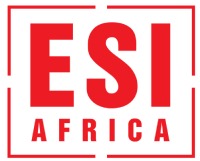700 finance stakeholders urged to fund coal on equal footing
FutureCoal pointed out that in 2024, coal consumption reached a record high, with more than $130 billion invested by commercial banks across Asia, US and Europe.
FutureCoal (previously the Global Alliance for Sustainable Coal), has called on 700 global finance and investment institutions to fund coal fairly. In an open letter addressed to the chief executives of global banks, asset managers and investment institutions, new FutureCoal Chairman Mike Teke emphasised the strategic role of both metallurgical and modern, low-emission thermal coal in securing energy, strengthening industries and driving sustainable economic growth.
Teke, who is also Group CEO of Seriti Resources in South Africa, issued the appeal at a time when coal remains the world’s largest source of electricity, meeting 33% of global demand.
Record year for coal
FutureCoal pointed out that in 2024, coal consumption reached a record high, with more than $130 billion invested by commercial banks across Asia, US and Europe.
“The reality means coal cannot be excluded from just energy transition or global growth and economic development discussions.
“It powers industries, protects jobs, and supports national development strategies, especially in regions with limited baseload alternatives,” said Teke.
The letter builds on FutureCoal CEO Michelle Manook’s earlier “Fund Fair, Fund Equal” campaign, which called for the same investment approach to thermal coal as metallurgical coal.
Sustainable Coal Stewardship (SCS) blueprint
The organisation reinforced its Sustainable Coal Stewardship (SCS) framework, which promotes responsible coal use through advanced mining and combustion technologies, as well as beyond-combustion applications such as coal-to-hydrogen, ammonia and critical mineral recovery.
“There is no practicable reason or excuse not to fund coal responsibly under the SCS framework. It is a pragmatic pathway which addresses both economic and environmental solutions across the value chain,” said Teke.
Record year for coal
FutureCoal pointed out that in 2024, coal consumption reached a record high, with more than $130 billion invested by commercial banks across Asia, US and Europe.
“The reality means coal cannot be excluded from just energy transition or global growth and economic development discussions.
“It powers industries, protects jobs, and supports national development strategies, especially in regions with limited baseload alternatives,” said Teke.
The letter builds on FutureCoal CEO Michelle Manook’s earlier “Fund Fair, Fund Equal” campaign, which called for the same investment approach to thermal coal as metallurgical coal.
Sustainable Coal Stewardship (SCS) blueprint
The organisation reinforced its Sustainable Coal Stewardship (SCS) framework, which promotes responsible coal use through advanced mining and combustion technologies, as well as beyond-combustion applications such as coal-to-hydrogen, ammonia and critical mineral recovery.
“There is no practicable reason or excuse not to fund coal responsibly under the SCS framework. It is a pragmatic pathway which addresses both economic and environmental solutions across the value chain,” said Teke.
He stressed that the intention is not to replace renewable energy sources but to ensure all resources contribute to economic growth, environmental progress and long-term energy security.
He explained previously that the SCS framework is not merely a concept but a practical roadmap. It serves to align policymakers, financiers and stakeholders, thereby supporting responsible coal use across multiple industries in the value chain, demonstrating that it is not only feasible but already underway.
Engagement with global financiers
At a media roundtable this week, FutureCoal confirmed that the letter followed 12 to 18 months of discussions with the finance, investment and insurance sectors.
Manook said she hoped those talks would now lead to “more realistic and better conversations around funding” to support companies seeking to operate responsibly in coal, regardless of their place in the value chain.
“Banks, investors, insurers have a framework [SCS] of producing coal in a better way. We hope that FutureCoal is treated fairly among other resources…” said Manook.
Opportunity in financing coal projects
She highlighted that “Western banks” especially had exited climate funds in the past 18 months and that “people are trying to find their way back to coal.”
“[We don’t] expect a drop in coal funding [but]… there will need to be investment in coal plants. The Austtalian Prime Minister came out saying there’s no reason why new coal fired plans should not be built.
“In 2025, we hope to see an increase in funding in coal. Coal is not going away immediately.”
Manook said the letters were primarily addressed to financiers, investors and insurers in the Global North.
She decried the lack understanding of coal and the coal sector and the impact this has on investors.
“There’s opportunity here [in coal],” said Manook.
Teke has pushed back against what he called the “coal closet” mentality, where investors, insurers and listed companies downplay or hide their involvement in the sector.
Call to finance coal
In his open letter Take said: “I urge you, as leaders in banking, investment, and insurance, to be bold, informed, and united in ensuring that this vital resource continues to serve the global community responsibly and effectively.
“If your institution is reviewing its energy portfolio or ESG screening policies, I welcome the opportunity to engage with you directly on how the SCS framework can align with your investment goals.”
Teke previously told ESI Africa that coal will continue to play a central role in South Africa and other coal-producing nations for at least the next 15 to 20 years, despite global pressure to accelerate the energy transition.
Cover photo: Coal mining in Witbank, Mpumalanga. Source: sunshineseeds©123rf.com


